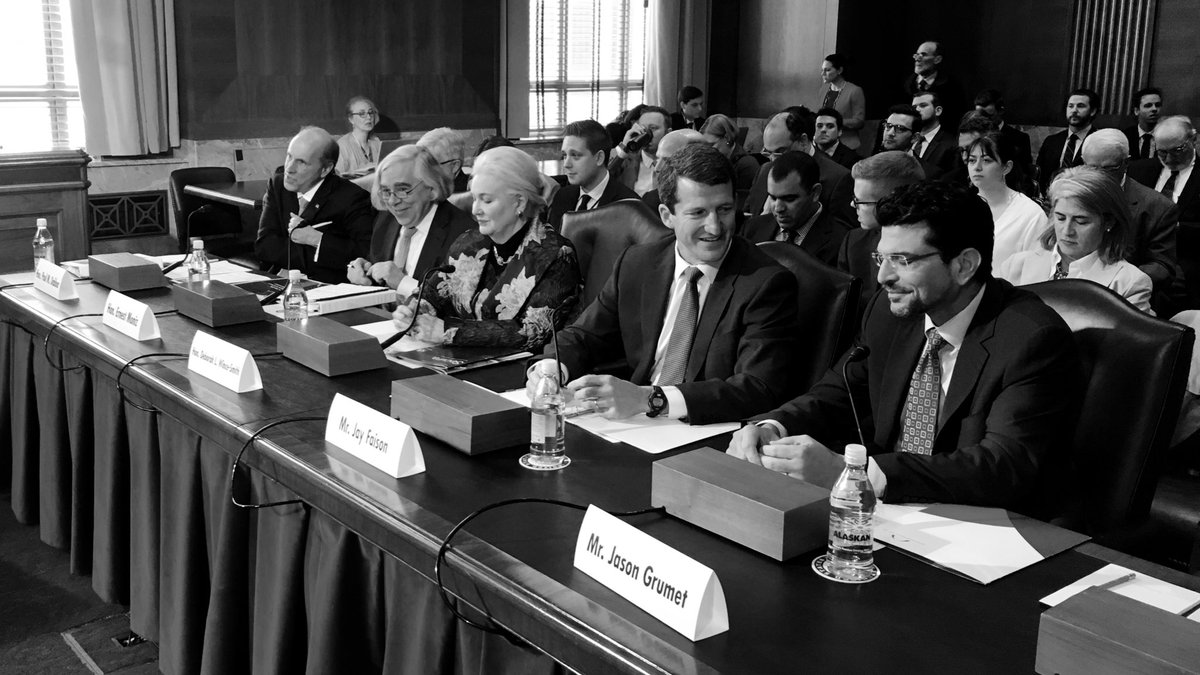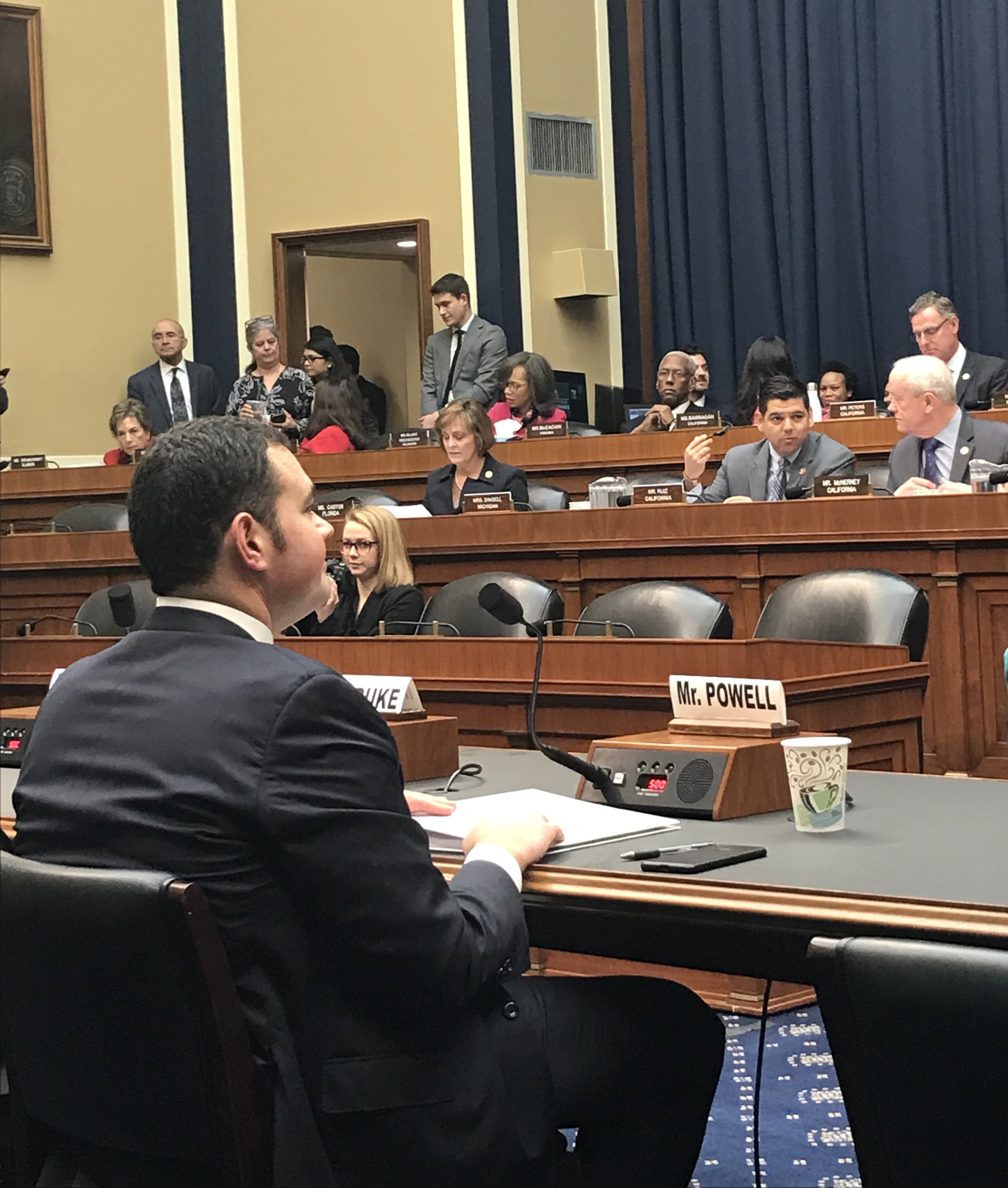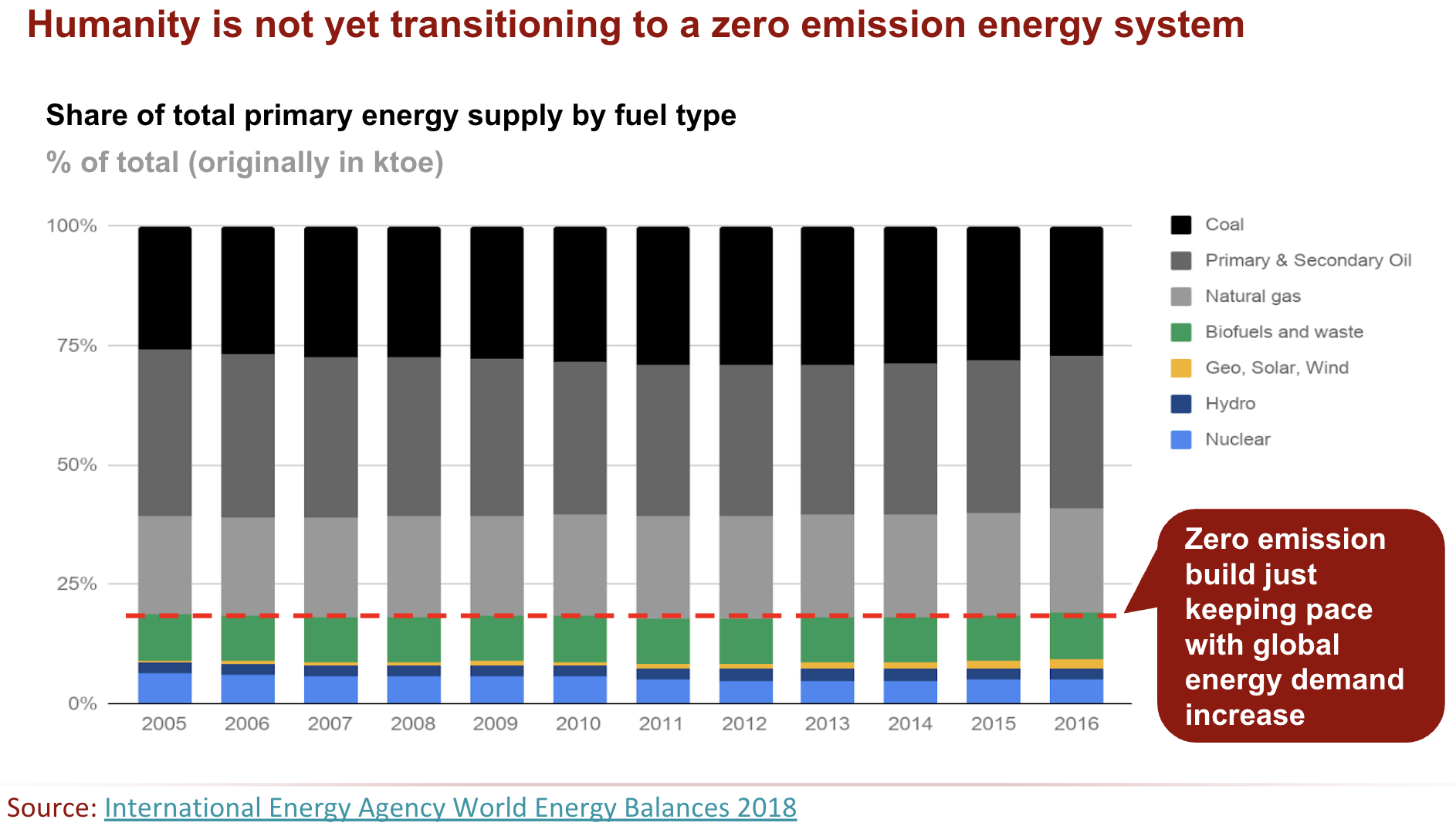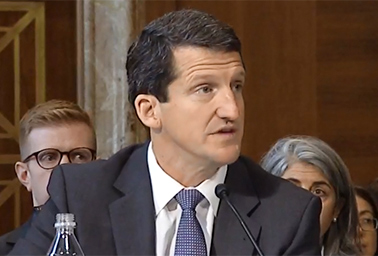
CLEARPATH TESTIFIES ON PRAGMATIC CLIMATE PLAN
ClearPath Founder Jay Faison and Executive Director Rich Powell, testifying respectively before two key congressional panels this week, stressed bipartisan and sensible solutions to climate change through the expansion of U.S. clean energy technologies and innovation.
“Climate change is an urgent challenge that merits action at every level of government and the private sector [and] deserves a pragmatic and technology-inclusive agenda to make the global clean energy transition cheaper and faster,” Rich told the House Energy and Commerce Committee Wednesday. “Let’s not rush toward any impractically hasty, exclusively renewable strategy in the U.S. that will be both costly and unlikely to reduce global emissions.”
He added that if supporters of the Green New Deal “truly believe climate change is an existential threat, they should focus on policies that reduce global emissions as quickly and cheaply as possible.”
“We should not put all of our eggs into one basket of technologies,” Jay added in his testimony before the Senate Energy and Natural Resources Committee Thursday. “We have to deliver the next set of affordable and clean technologies that we can export everywhere.”
Former Energy Secretary Ernest Moniz echoed the same sentiment at the Senate hearing, which is also detailed in a new report he and IHS Markit Vice Chairman Dan Yergin co-authored.

Rich talked to Rep. Buddy Carter (R-Ga.) about how the future of nuclear power will be reactors that are “much smaller, less capital intensive and more flexible.” That includes small modular reactors being developed by NuScale Power and microreactors from Oklo and others.
Rich said last Congress didn’t get the credit it deserves for boosting clean energy technologies, while noting that “moonshot” clean energy innovation goals, stronger financing and other incentives and removing regulatory barriers are among what’s needed to increase the pace and ambition of our climate efforts.
“If we’re taking a global lens of the problem, the key is making clean technology cheaper, not traditional energy more expensive,” Rich told House Energy and Commerce ranking Republican Greg Walden.

Early on in the hearing, Walden summed up the position of many of his fellow panel Republicans heading into the climate and clean energy debate this Congress. “Climate change is real. The need to protect the environment is real. The need to foster a strong U.S. economy and grow American jobs is also real,” he said. “The Republicans on this committee are ready and willing to have serious, solutions-oriented discussions about how to address and balance these considerations.”
In an exchange with Rep. Scott Peters (D-Calif.), Rich touted the bipartisan Senate advanced nuclear blueprint, the Nuclear Energy Leadership Act, as a model for helping accelerate deployment a broader array of next-generation clean energy technologies.
Rich and Rep. Cathy McMorris Rodgers (R-Wash.) talked about how hydropower is one of the most valuable forms of renewable power thanks to its high capacity, flexibility in scaling up and down and as a major energy storage solution and must be a central part of a climate agenda.
Rich and McMorris Rodgers also discussed how grid-scale energy storage is “far more than just batteries,” and includes pumped hydro, heat and other technologies that should be given a chance to be targeted by “very aggressive goals” and performance milestones. “I share ClearPath’s goals to expand energy storage,” McMorris Rodgers said.

In an exchange with Sen. Cindy Hyde-Smith (R-Miss.), Jay noted that China doesn’t make distinctions between basic and applied energy research. “They’re focused on outcomes,” he said. “We need to look for outcomes and then plug the holes we have in technology development so that we can compete with the Chinese.”
A prime example of this Chinese commercialization and development advantage is the case of the lithium ion battery company A123 Systems, which was bought by the Wanxiang Group after declaring bankruptcy despite spending $129 million of a $249 million Department of Energy grant. “We do a great job in the basic research” but companies eventually go to market without incentives or financial support, Jay said. “They’re kind of out on their own, they declare bankruptcy and the Chinese buy them for cheap and scale them up,” he added. “That’s been a pretty consistent happening and I think that’s something we need to fix.”
Jay also noted “deeply sobering” risks detailed in the 2018 National Climate Assessment and a separate Department of Defense report outlining recurrent flooding and other impacts already occurring at military bases and installations.
Jay and Rich stressed the global nature of the problem. “The expected emissions growth from developing Asian countries alone would offset a complete decarbonization of the U.S. economy by mid-century,” Rich noted. “We have a choice – bet that the Chinese and Indians will close recently-built plants at the expense of economic growth OR develop, demonstrate and export U.S.-based emission control technology,” Jay added.
“Technology is the genie you can’t put back in the bottle,” Rich told Rep. David McKinley (R-W.Va.). “Political will for climate solutions will come and go … but technology will last.”
|